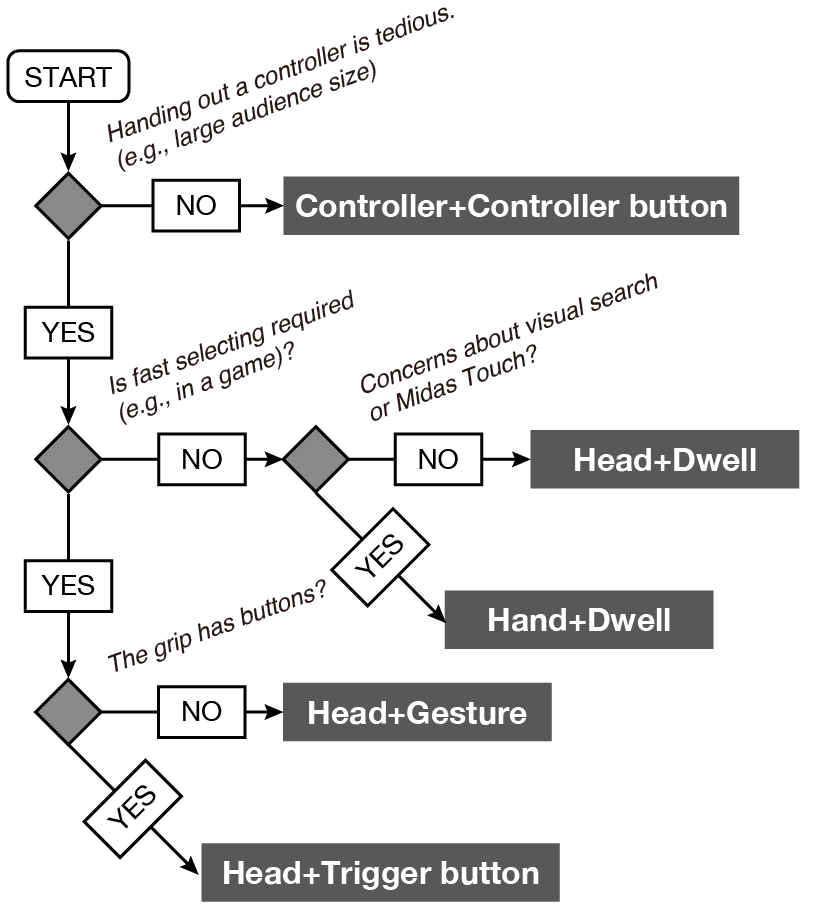Yuki Abe
Ph.D. Student at Hokkaido University

Understanding Usability of VR Pointing Methods with a Handheld-style HMD for Onsite Exhibitions
Yuki Abe*, Kan Kusakabe*, Myungguen Choi*, Daisuke Sakamoto, and Tetsuo Ono

Figure 1: Overview of our study. (A) Handheld-style HMDs are headsets that can be held in one hand and are utilized in VR exhibitions to help visitors start VR content with their snackable effort. (B) Comparison of VR pointing methods with handheld-style HMDs to understand the usability of VR pointing methods for interactive VR exhibitions using handheld-style HMDs.
Abstract
Handheld-style head-mounted displays (HMDs) are becoming increasingly popular as a convenient option for onsite exhibitions. However, they lack established practices for basic interactions, particularly pointing methods. Through our formative study involving practitioners, we discovered that controllers and hand gestures are the primary pointing methods being utilized. Building upon these findings, we conducted a usability study to explore seven different pointing methods, incorporating insights from the formative study and current virtual reality (VR) practices. The results showed that while controllers remain a viable option, hand gestures are not recommended. Notably, dwell time-based methods, which are not fast and are not commonly recognized by practitioners, demonstrate high usability and user confidence, particularly for inexperienced VR users. We recommend the use of dwell-based methods for onsite exhibition contexts. This research provides insights for the adoption of handheld-style HMDs, laying the groundwork for improving user interaction in exhibition environments, thereby potentially enhancing visitor experiences.

Design guideline of VR pointing methods with a handheld-style HMD for VR exhibitors based on our findings from the user study.
Video
Presentation (10 min)
Publication
Yuki Abe*, Kan Kusakabe*, Myungguen Choi*, Daisuke Sakamoto, and Tetsuo Ono. Understanding Usability of VR Pointing Methods with a Handheld-style HMD for Onsite Exhibitions. In CHI Conference on Human Factors in Computing Systems (CHI ’25), April 26–May 01, 2025, Yokohama, Japan. ACM, New York, NY, USA, 21 pages. *—equal contribution. Honorable Mention Award. [DOI]
